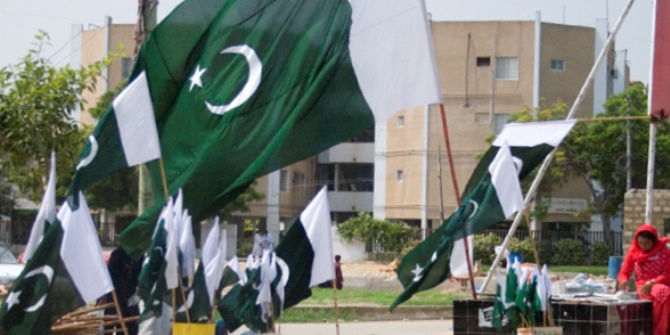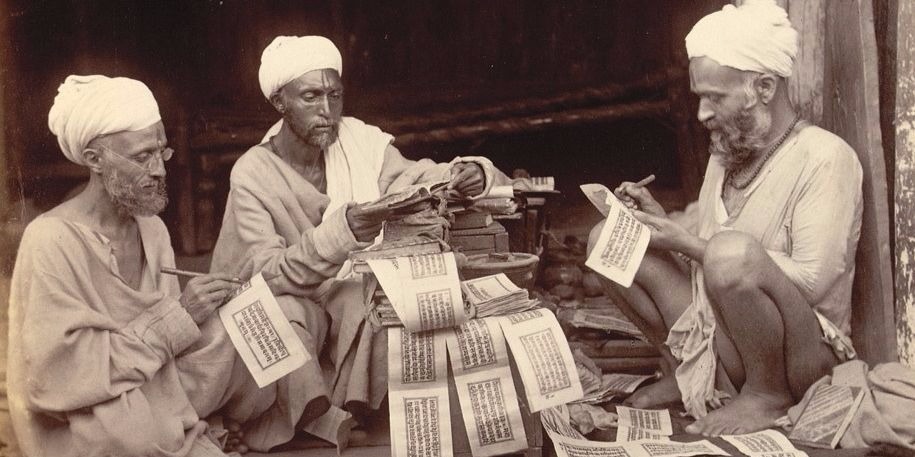In the second edition of Shuja Nawaz’s book Crossed Swords: Pakistan, its Army and the Wars Within, Florian Weigand (LSE) finds over 600 pages on the history of the Pakistani army, providing an important description of the backdrop of contemporary dynamics in the country.
Crossed Swords: Pakistan, its Army and the Wars Within. Shuja Nawaz Oxford Pakistan Paperbacks. 2017

In the second edition of his book Crossed Swords: Pakistan, its Army and the Wars Within (2017), Shuja Nawaz offers detailed insights into the history of the Pakistani army, providing an important description of the backdrop of contemporary dynamics in the country. On over 600 pages the book covers the events that shaped Pakistan, from partition to the War on Terror, outlining how the army has been formed and how internal and external dynamics have affected it. The book is based on archival data, informal conversations with key individuals and Nawaz’s extensive personal background knowledge. Crossed Swords is a book for people who are interested in the empirical details of Pakistan’s military history.
 What makes the book especially insightful is Nawaz’s look behind the curtains at an institution, which is wary of researchers and journalists and of which we therefore only have a very fragmented understanding. In great detail Nawaz dicsusses the various ‘wars within’ Pakistan of the past decades: wars between the civilian and the military leadership as well as wars within each of these sectors. Nawaz skilfully illustrates how these wars played out with anecdotes. For instance, Nawaz outlines how the relationship between Prime Minister Bhutto and President Leghari crumbled in the mid 1990, drawing on interviews conducted with both of them. The interviews reveal how both parties drew on different parts of the military sector in the course of the strife. Ultimately, the Intelligence Bureau (IB) was keeping tabs on Leghari while the Military Intelligence (MI) was doing so on Bhutto.
What makes the book especially insightful is Nawaz’s look behind the curtains at an institution, which is wary of researchers and journalists and of which we therefore only have a very fragmented understanding. In great detail Nawaz dicsusses the various ‘wars within’ Pakistan of the past decades: wars between the civilian and the military leadership as well as wars within each of these sectors. Nawaz skilfully illustrates how these wars played out with anecdotes. For instance, Nawaz outlines how the relationship between Prime Minister Bhutto and President Leghari crumbled in the mid 1990, drawing on interviews conducted with both of them. The interviews reveal how both parties drew on different parts of the military sector in the course of the strife. Ultimately, the Intelligence Bureau (IB) was keeping tabs on Leghari while the Military Intelligence (MI) was doing so on Bhutto.
Beyond the ‘wars within’, the book provides useful background information that explains how and why certain decision were made that ultimately also affected international affairs. For example, Nawaz’s book provides further insights into the reasoning that underpinned the decision of the Pakistani army to infiltrate the Line of Control, dividing Pakistan and India, in Kargil in 1999 and the difficulties Prime Minister Sharif faced when he tried to contain the resulting conflict, navigating a complex landscape of domestic interests. According to Nawaz, Sharif travel to the US to get the support of President Clinton. However, ‘The US had been alarmed by the fact that not only had Sharif invited himself to come to Washington at short notice but he had also bought with him, in an unusual move, his family. It was almost as if he did not think it would be safe to go back if his mission failed.’ The book is full of such examples, which illustrate what happened behind scenes of what is known to the public.
Compared to the book’s strong focus on Pakistan’s relations with the US and India, the country’s Afghanistan relationship is explored less. For instance, the extent and the character of links between the Pakistani army, or the intelligence agency ISI, and the Taliban in Afghanistan, is not addressed much, particularly with regard to the developments following the international intervention in Afghanistan in 2001. Hence, the accounts of other authors, such as Steve Coll’s Directorate S: the C.I.A. and America’s secret wars in Afghanistan and Pakistan (2018), complement Nawaz’s work.
Crossed Swords: Pakistan, its Army and the Wars Within was first published in 2008. The second edition (published in 2017) reviewed here contains an updated preface, however, it does not cover the developments in Pakistan since 2008 in further detail. Hence, Crossed Swords, in the first instance, is a history book. Nonetheless, the book is also relevant for people who are interested in Pakistan’s contemporary politics, providing important background information that help to make sense or gain an improved understanding of current developments in the country. Furthermore, according to Nawaz, a new book of his is in the making, which ‘will take the story forward’. It will certainly be a story worth reading.
This article gives the views of the author, and not the position of the South Asia @ LSE blog, nor of the London School of Economics. Please read our comments policy before posting.
Dr Florian Weigand is an ESRC Postdoctoral Fellow in the Department of International Development at the London School of Economics and Political Science. @florian_weigand








Informatic book but facts are ignored in given synopsis that Pakistan foreign policy was under greatly foreign influenced. However, things will change with the span of time since power is shifting quiet slowly.
Shuja Nawaz is perhaps the best informed observer of the history of the Pakistan Army and deeply aware of the “battles within.” The first edition of this book was outstanding, and the revised version maintains its position as a “must read” book on the subject.